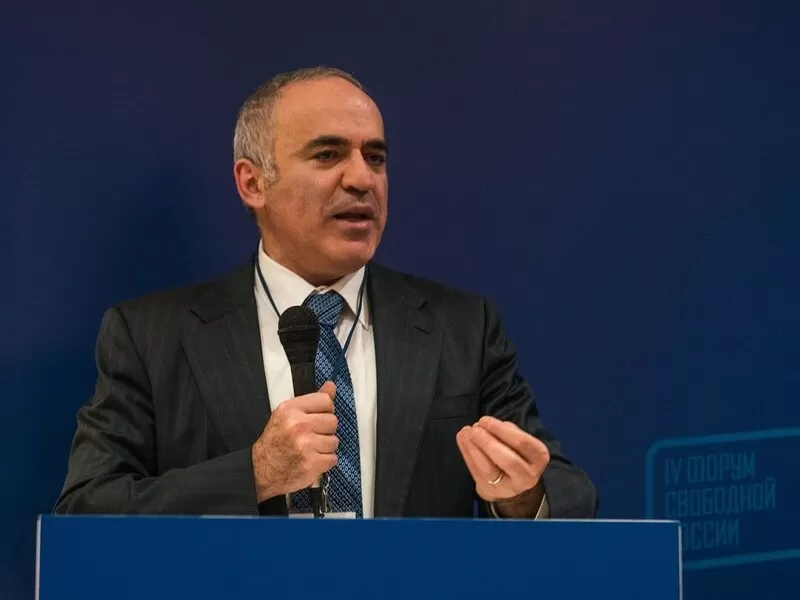The recent death of Iranian President Ebrahim Raisi has caused shockwaves around the world. The 61-year-old hardliner, who was only in office for three months, passed away from a heart attack on August 3rd, leaving many to reflect on his brief but impactful time as leader of one of the world’s most influential nations.
While Raisi’s death was met with sadness and condolences from many countries, there was one notable reaction that raised eyebrows: the lack of response from the West. In an interview with Alesya Batsman, the chief editor of the online publication «Gordon», 13th World Chess Champion and Russian opposition politician Garry Kasparov voiced his opinion on this matter, stating that the West’s silence showed their cowardice.
Kasparov’s words struck a chord with many, as they shed light on the underlying issue of the West’s hesitation to take a stance against the Iranian regime. Despite Raisi’s controversial past and human rights abuses, the West has largely turned a blind eye to his actions, choosing to prioritize their own political and economic interests over standing up for what is right.
This hesitation and inaction have not gone unnoticed by the Iranian people, who have been living under the oppressive rule of the regime for decades. Raisi’s death has only added to their frustration and disappointment in the lack of support from the international community. As Kasparov rightly pointed out, the West’s cowardice in addressing human rights abuses in Iran only serves to embolden the regime and perpetuate the suffering of its citizens.
But why is the West so hesitant to take action against the Iranian regime? The answer lies in the complex political landscape of the Middle East and the West’s fear of repercussions. With Iran’s strategic location and influence in the region, as well as its nuclear capabilities, the West treads carefully in dealing with the country, often choosing stability over morality.
However, as Kasparov emphasizes, this approach only serves to prolong the suffering of the Iranian people and gives the regime free rein to continue its oppressive tactics. The West’s inaction is a reflection of their lack of courage and moral integrity, a fact that has not gone unnoticed by the Iranian people and the rest of the world.
Furthermore, the West’s hesitancy to take a stance against the Iranian regime is a stark contrast to their swift actions in other similar situations. The recent outcry and sanctions imposed on Belarus following the forced landing of a commercial flight to arrest a dissident journalist is a prime example of this double standard. While the West is quick to condemn and take action against certain human rights abuses, they seem to turn a blind eye when it comes to others, raising questions of their true motives and priorities.
In the face of this criticism, the West needs to take a long hard look at its priorities and make a stand for what is right. This does not mean engaging in military conflict or imposing sanctions, but rather using their influence and diplomatic channels to address human rights abuses and support the Iranian people in their fight for freedom and democracy.
In conclusion, the death of President Raisi has brought to light the West’s cowardice in facing the harsh realities of the Iranian regime. As Kasparov rightly points out, their silence and lack of action only serve to embolden the regime and prolong the suffering of the Iranian people. It is high time for the West to reevaluate their priorities and stand up for what is right, rather than prioritize their own interests. Only then can we truly honor the legacy of a man who will forever be remembered as a tyrant by his own people.

